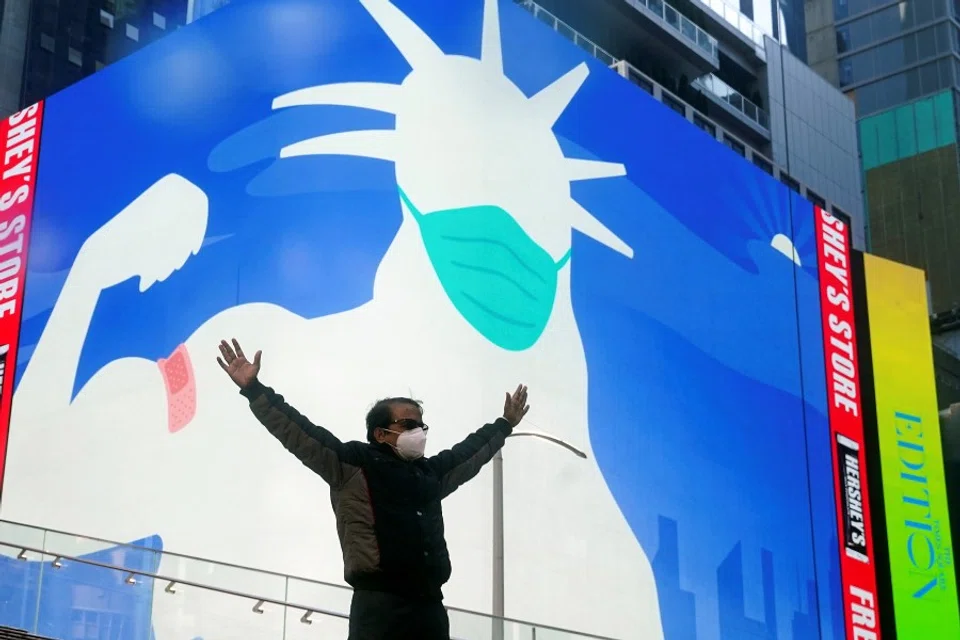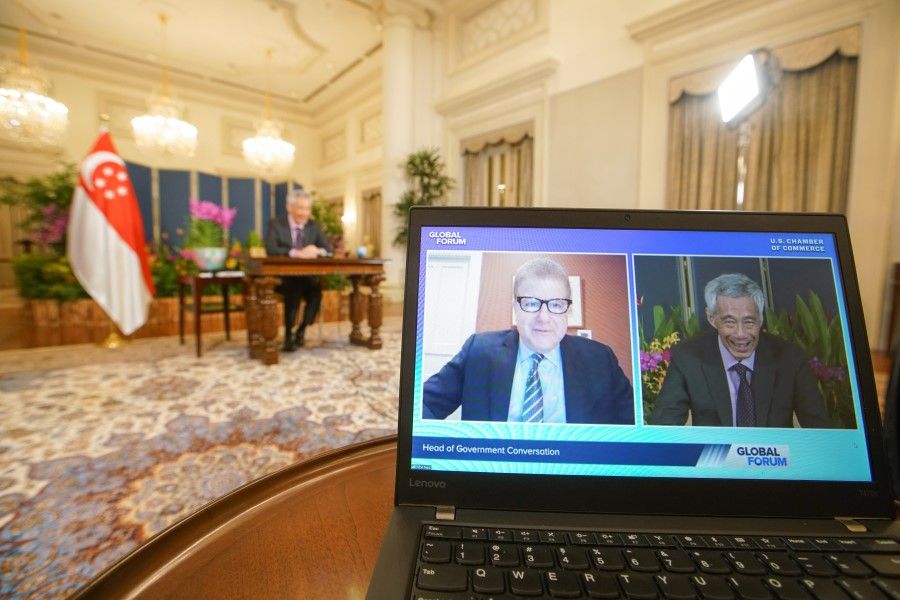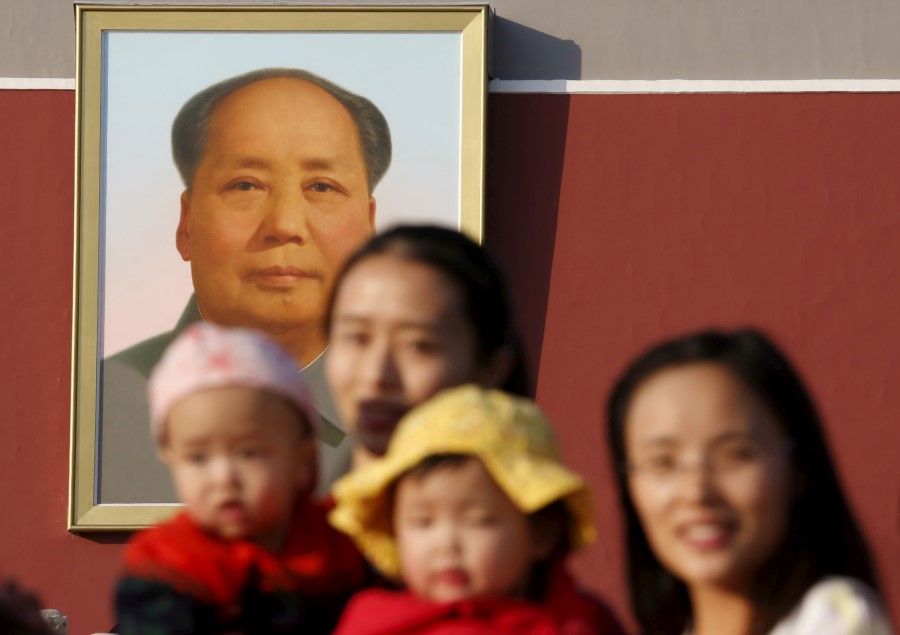Singapore PM Lee Hsien Loong: If America and China clash, everything will be lost

Myron Brilliant: Let me talk about US-China relations next, because you have a critical relationship with both the US and China, you have watched the trajectory of this relationship over many years, you have seen the increasing tensions in the relationship over trade, human rights issues, over technology, the regulation and national security aspects of technology over South China Seas and over many other areas. We all know that having a stable, constructive and pragmatic relationship between China and the US is critical, not just for the bilateral relationship, but for the world economy, and certainly from your lens. Tell us what needs to happen in both Washington and Beijing to put this relationship on a more stable path? And what is the stake in your view for the rest of the world?
Prime Minister Lee Hsien Loong: For the rest of the world, everything is at stake because if the US-China relationship goes sour, you are going to have a state of tension - anxiety at the very least and conflict possibly - all over the world. Certainly, all over the Asia-Pacific, or as now America prefers to call it, the Indo-Pacific. And that is going to be bad, not just for other countries big and small, but for both America and China too. Because both America and China are countries with enormous economic and technological power, with high-tech capabilities, weaponry, nuclear capabilities; and modernised armed forces in the case of the PLA, and the most powerful armed forces in the world, in the case of the US Armed Forces, but not so powerful that when you [i.e. the US] go to war, that you do not take casualties, and expect to absorb a lot of damage. So, if the two countries clash, everything is to be lost.
...people work with you not just because they are afraid of you, but because they think that there is room for them, you leave room for them, and you are doing good for the world, generally. For the Chinese to adopt such an attitude, it takes time.

Therefore, it is necessary for both countries to decide to work together and accept each other as they are, but work together and find common ground where they can cooperate. And there are many [opportunities]. Climate change is one, where [US and China] are talking, and John Kerry has been to China already. But it cannot just be climate change. You have nuclear non-proliferation, public health, and pandemics to come. You have the global trading system needing to be on a stable basis in order that countries can import, export, trade and develop their business and prosperity. The two countries have to work together, but it means that both countries have to reconcile their international stances with their domestic political opinions. And both have domestic political opinions, even the Chinese. And [both countries will have to] overcome the nationalist instinct to say, "We will look after our country's interests, but we will do so by cooperating with other countries. Whether or not we fully trust them, and whether or not they are our bosom friends, they have to be our partners on this planet."
And for China, that is a big deal. Because the Chinese have reached a point where they feel that they have not only stood up and become wealthy, but they want to become strong and be acknowledged as such. But when you are strong, you are not the only strong guy in the world. You have to know how to have that strength accepted by others over the long term, as the US has been able to do since the Second World War. You [the US] have the most powerful fleets and aircraft and army, but you have a lot of friends around the world, and people work with you not just because they are afraid of you, but because they think that there is room for them, you leave room for them, and you are doing good for the world, generally. For the Chinese to adopt such an attitude, it takes time.
There is no Potemkin village in China, it is real! The vitality, the innovation, the drive, the prosperity, the determination to get ahead. And neither is America a declining and fading society.

For the US, to accept that China is a fact, that it is not going to disappear, and you have to work with it. You can try to influence it, but you cannot convert it. And it is not going to become like a European country, much less like the United States of America. It is a big psychological thing for America to accept, and it takes great statesmanship to make it work and to make Americans go along with such a policy, but that is what you need. If you do not do that, and the two countries clash, neither is going to curl up and die. It is not like with the Soviet Union. There is no Potemkin village in China, it is real! The vitality, the innovation, the drive, the prosperity, the determination to get ahead. And neither is America a declining and fading society. So somehow, [both countries] have to come together, and that is the responsibility of statesmen on both sides.